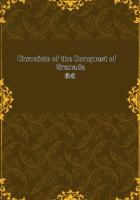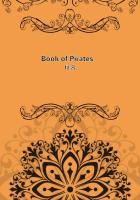When your teeth are chattering with the cold, and the wind threatening to make havoc with your raiment, you are not in a favorable condition to appreciate grand scenery. Like the king of France with twice ten thousand men, we marched up the hill and then, marched down again. We found descending still more difficult, as we were in constant fear of slipping, losing our hold, and rolling to the bottom. We were tired, hungry, and disappointed, and the fear of not reaching the valley before nightfall pressed heavily upon us. Neither confessed to the other the fatigue and apprehension each felt, but, with fresh endeavor and words of encouragement, we cautiously went on. We accidentally struck a trail that led us winding down comfortably some distance, but we lost it, and went clambering down as well as we could in our usual way. To add to our misery, a dense Scotch mist soon enveloped us, so that we could see but a short distance ahead, and not knowing the point from which we started, we feared we might be going far out of our way. The coming twilight, too, made the prospect still darker. Fortunately our host, having less faith in us than we had in ourselves, sent a guide to reconnoiter, and, just at the moment when we began to realize our danger of spending the night on the mountain, and to admit it to each other, the welcome guide hailed us in his broad accent. His shepherd dog led the way into the beaten path. As I could hardly stand I took the guide's arm, and when we reached the bottom two donkeys were in readiness to take us to the hotel.
We did not recover from the fatigue of that expedition in several days, and we made no more experiments of exploring strange places without guides.
We learned, too, that mountains are not so hospitable as they seem nor so gently undulating as they appear in the distance, and that guides serve other purposes besides extorting money from travelers. If, under their guidance, we had gone up and down easily, we should always have thought we might as well have gone alone. So our experience gave us a good lesson in humility. We had been twelve hours on foot with nothing to eat, when at last we reached the hotel. We were in no mood for boasting of the success of our excursion, and our answers were short to inquiries as to how we had passed the day.
Being tired of traveling and contending about woman's sphere with the Rev. John Scoble, an Englishman, who escorted Mr. Birney and Mr. Stanton on their tour through the country, I decided to spend a month in Dublin; while the gentlemen held meetings in Cork, Belfast, Waterford, Limerick, and other chief towns, finishing the series with a large, enthusiastic gathering in Dublin, at which O'Connell made one of his most withering speeches on American slavery; the inconsistency of such an "institution" with the principles of a republican government giving full play to his powers of sarcasm. On one occasion, when introduced to a slaveholder, he put his hands behind his back, refusing to recognize a man who bought and sold his fellow-beings. The Rev. John Scoble was one of the most conceited men I ever met. His narrow ideas in regard to woman, and the superiority of the royal and noble classes in his own country, were to me so exasperating that I grew more and more bellicose every day we traveled in company. He was terribly seasick crossing the Channel, to my intense satisfaction.
As he always boasted of his distinguished countrymen, I suggested, in the midst of one of his most agonizing spasms, that he ought to find consolation in the fact that Lord Nelson was always seasick on the slightest provocation.















